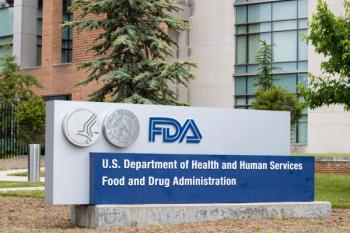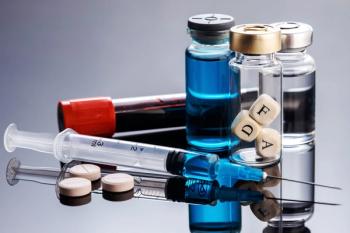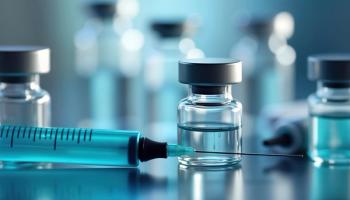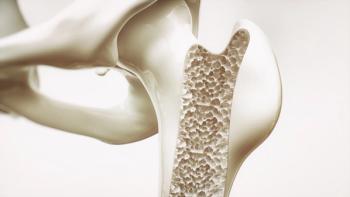
Review Paper Argues for Broader Use of Riabni, a Rituxan Biosimilar
The review, partly funded by Amgen, the maker of Riabni, makes the case for using the biosimilar to Rituxan for all indications of the originator.
Riabni (rituximab) is a biosimilar to Rituxan that has been on the U.S. market for 18 months. It has achieved an average sales price (ASP) discount of 20% off the reference product. A new review
Riabni is the most recent of three Rituxan biosimilars the FDA has approved--the others being Truxima (2018) and Ruxience (2019). Riabni is approved in the United States for all oncologic indications of Rituxan, but not rheumatoid arthritis (RA), although Rituxan is.
Rituxan attacks the blood cells that are responsible for the inflammation in RA, but this process is so different from the drug’s efficacy in oncology that Amgen sought to justify “extrapolation” to use in RA by doing comparative studies of Riabni in RA as well as oncology (non-Hodgkin lymphoma, NHL).
“Although the approval of a candidate biosimilar may be extrapolated to indications that share a mechanism of action, this was more challenging for (Riabni) because (Rituxan) is indicated for a broad range of oncological and autoimmune diseases,” wrote lead author Patrick Cobb, M.D., of St. Vincent Cancer Center in Billings, Montana, and his colleagues.
“In addition to differences in disease pathology, RA and non-Hodgkin lymphoma patient populations are quite distinct and expected to have different comorbidities and co-medications.”
Comparative clinical efficacy and safety trials for Riabni and Rituxan were performed in patients with NHL and RA.
“The totality of evidence supported the conclusion that Riabni is highly similar to Rituxan and provided scientific justification for extrapolation to other approved indications of Rituxan,” Cobb wrote. Rituxan is also indicated for chronic lymphocytic leukemia, granulomatosis with polyangiitis, microscopic polyangiitis, and pemphigus vulgaris.
To obtain regulatory approval, developers of biosimilars must demonstrate that their products have no clinically meaningful differences from the reference products. Clinical equivalence in RA for Riabni and Rituxan was demonstrated in a large, 57 center study in the European Union and United States. The primary end point was the change from baseline in Disease Activity Score 28 for RA with C-reactive protein. This test measures the severity of RA conditions including joint tenderness and swelling.
At week 24, the mean decrease from baseline was -2.197 and -2.125 for Riabni and Rituxan, respectively, which investigators said were comparable to findings from other trials of Rituxan in patients with RA.
In the JASMINE trial, Riabni and Rituxan were compared in patients with follicular lymphoma, a type of NHL. The primary end point was overall response rate. The findings also pointed to equivalence between the two brands. Investigators said 78.0% and 70.2% of Riabni and Rituxan patients, respectively, had a complete, partial, or unconfirmed complete response. “Overall, there were no clinically meaningful differences in efficacy or safety of Riabni compared with Rituxan in patients with follicular lymphoma,” Cobb wrote.
The totality of evidence considered in this analysis included a comparative analytical and functional similarity assessment, which reveals whether the critical qualities of the reference product match those of the biosimilar. “As evidenced by results from cell-based assays and binding studies, Riabni and Rituxan were similar in their biological and functional properties,” Cobb wrote.
Clinical pharmacokinetic and pharmacodynamic studies also demonstrated similarity.
In their conclusions, the authors expressed confidence that the growth of biosimilar use would be supported by a payer emphasis on cost reduction. Riabni, Truxima, and Ruxience were aimed at a roughly $6.5 billion global market for Rituxan (2019 sales), and ASP discounts for Ruxience and Truxima reached 33% and 36%, respectively, by the second quarter of 2021, according to Amgen.
Rituxan global sales were about $2.7 billion in 2021, down 38% from the year before, an indication of formidable biosimilar competition.
Newsletter
Get the latest industry news, event updates, and more from Managed healthcare Executive.

























